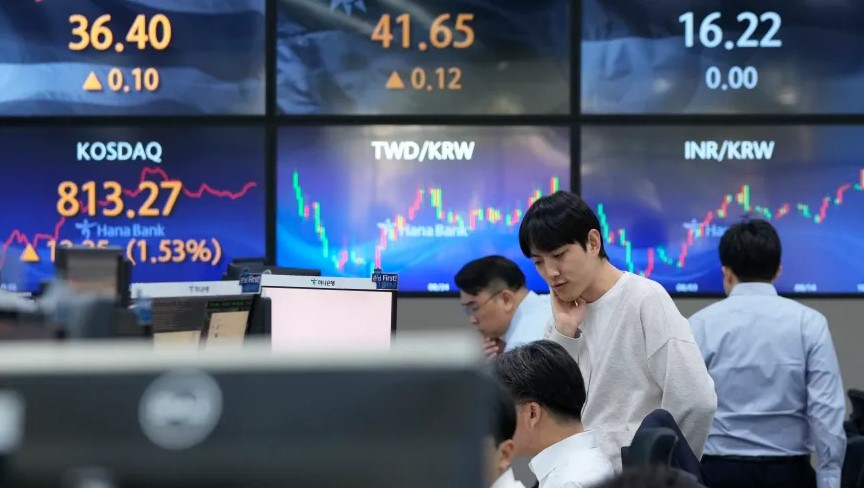As the first quarter of 2024 comes to an end, global financial markets have remained relatively stable, a stark contrast to the upheavals of previous years. This period of calm, however, has not been without its moments of uncertainty, especially concerning the Federal Reserve’s future policies.
The recent address by Federal Reserve Governor Christopher Waller has significantly impacted market expectations for 2024, bringing them back in line with pre-announcement levels.
Waller’s emphasis on relying on data to guide potential rate adjustments highlights the Fed’s cautious approach, particularly in light of recent inflation figures.
This development could potentially shape investor decisions, particularly regarding the shift away from U.S. mega caps, which currently carry a substantial valuation premium.
Equity markets manage valuation and global breadth
The current equity landscape finds itself amidst a bull market, particularly evident in the valuation premium enjoyed by U.S. large caps, notably in the tech sector. However, questions arise regarding the sustainability of such valuations across other market segments.

An in-depth examination of global market breadth, encompassing the top 25 countries from the Bloomberg World 500 index, paints a nuanced picture.
While developed markets show a moderate average drawdown from their all-time highs, emerging markets display a more pronounced average drawdown, indicating a discrepancy in market performance.
This analysis hints at potential opportunities for investors to explore markets offering more attractive valuations beyond the highly valued U.S. large caps.
Asian markets react to U.S. economic indicators
Asian stock markets have exhibited favorable momentum, influenced by Wall Street’s gains and expectations surrounding vital U.S. consumer price data.
This positivity finds reinforcement in internal occurrences within China, Japan, and South Korea, bolstering investor confidence.

Moreover, currency market movements, notably concerning the Japanese yen, have garnered interest due to official interventions striving to stabilize exchange rates.
Concurrently, corporate happenings within China’s real estate domain, such as postponed earnings disclosures and profit downturns, introduce further intricacies to the regional market landscape.
Regulatory clarifications impact Indian currency derivatives
In India, the Reserve Bank of India (RBI) has issued recent clarifications regarding exchange-traded currency derivative contracts, which carry implications for market participants.

The RBI’s focus on hedging purposes for these contracts, along with a firm stance against speculative trades lacking underlying exposure, may have a notable effect on market volumes.
This development underscores the changing regulatory environment within India’s foreign exchange market, demonstrating the central bank’s commitment to upholding market stability.


